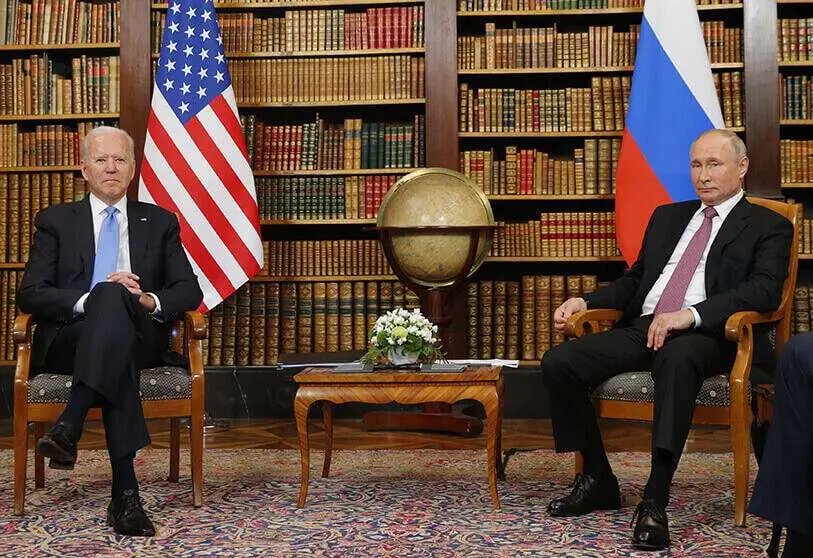Permanent cold war

The Cold War between Russia and the United States plus the European Union resumed in 2014 after the so-called Orange Revolution in Kiev's Maidan Square. Ukraine's president at the time, Viktor Yanukovych, was ousted from power by the enormous influence of the protesters who forced him out despite an agreement signed by Yanukovych himself with other representatives of the pro-European Ukrainian opposition and several European foreign ministers. Surprisingly, the signature of the European ministers was of no use, nor were the other stone guests, because what prevailed were the conditionalities of Washington-backed Orange revolutionaries.
Until then, since the fall of the Berlin Wall in 1989 and the demise of the Soviet Union, the few conditions that Mikhail Gorbachev, compromised by broad sectors of his armed forces, had managed to bring to the negotiating table had been respected, and despite the political and economic collapse caused by his Stalinist policies, they had played the last card of pressure of nuclear weapons to guarantee a security belt for Moscow with Ukraine. The then US Secretary of State James Baker realised the wisdom of leaving a way out for his enemies to deal with a new international order under Western rule.
For many years, economic and social bankruptcy conditioned Russian leaders' decisions and concessions to Western demands. Meanwhile, China grew gradually, quietly, but with objectives that are now being shown in full force in the struggle for world hegemony, both economic and political. The enormous expenditure on the wars in Afghanistan and Iraq and the subprime mortgages caused the financial and economic crisis in the West from 2007 to 2014, enough time for Russia to recover its economic and military pulse, above all thanks to oil, under the rule of an inflexible and calculating Vladimir Putin, head of a group of oligarchs who have been able to put Russia back on the chessboard of the great powers, although its GDP barely surpasses that of Italy, but with more than 144 million inhabitants.
Since Putin's decision to annex Crimea and provoke war in Ukraine's Donbas in 2014, he has had to face harsh economic sanctions from the United States and Europe, but the effect has sometimes been more damaging for Europeans with a substantial dependence on Russian gas for their industries and homes, especially Germany. In the winter of 2022, tensions have risen too high and military conflict seems inevitable. Putin and Biden, talk. Nobody is interested in war, no matter how big or small. We will remain in a permanent Cold War.

